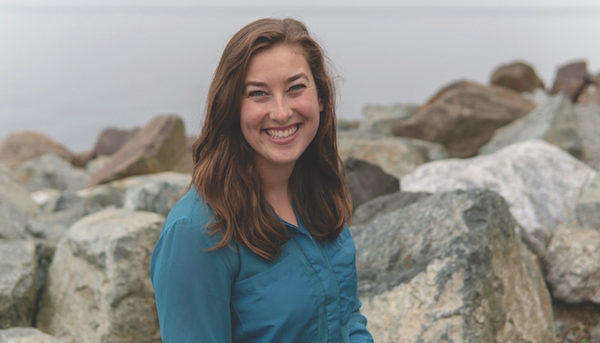As a new Planning Analyst at the City of Seattle, PROTEC17 member Julie Scrivner plays an integral role in designing more equitable energy programs at Seattle City Light. In her first six months on the job, she has conducted research and met with community leaders and stakeholders to learn how the City can create better clean energy programs that reach all communities.
“I have been specifically focused on applying a racial equity analysis to our work to learn how we can design more equitable programs for communities of color, immigrants, refugees, individuals surviving on low-incomes, and individuals with limited English proficiency,” said Scrivner.
Her work will be integrated into City Light’s plans for improvements to Customer Energy Solutions (CES) programs, which offer incentives to Seattle residents for becoming more energy efficient. CES has rebate and assistance programs for everything from energy efficient lighting, appliances, and windows, to electric vehicles and solar energy.
Scrivner first got interested in environmental justice issues when she was introduced to a sustainable and justice-focused farm in tenth grade. In college, she studied how environmental issues are intertwined with social, political and economic systems, as well as the history of poverty and inequality.
Prior to starting her job at the City, Scrivner worked for four years as a consultant to utility companies, helping research, develop and implement products for clean energy programs. Now that she works within the public sector, she is able to bring all of her knowledge and experience to provide a direct benefit to the Seattle community. She likes that in the public sector there is a responsibility to serve all.
Also, as a new PROTEC17 member, Scrivner is keenly aware of the role unions play in building support and power for workers, as well as the responsibility they have to promote equity and social justice in the workplace, and in their own internal structures.
In the work Scrivner is doing at City Light, equity is important to her because the clean energy programs have the potential to make tangible differences in people’s lives. From creating materials in multiple languages, to finding the right access points to deliver resources to the community, to creating offers that address what’s needed, Scrivner sees the opportunity to build varying programs and services that meet the needs of everyone served by City Light.
“Everyone should be able to readily access, participate in, and benefit from these programs,” she said. “A one-size-fits-all solution doesn’t work for the diversity of people within our communities.”
At six months in, Scrivner is finding her job incredibly rewarding.
“I am deeply grateful for the opportunity to work in the intersection of clean energy and equity to ensure that everyone benefits from our investments,” said Scrivner. “I am excited to show up for work every day because I love what I do and I love working on it with my teammates.”


